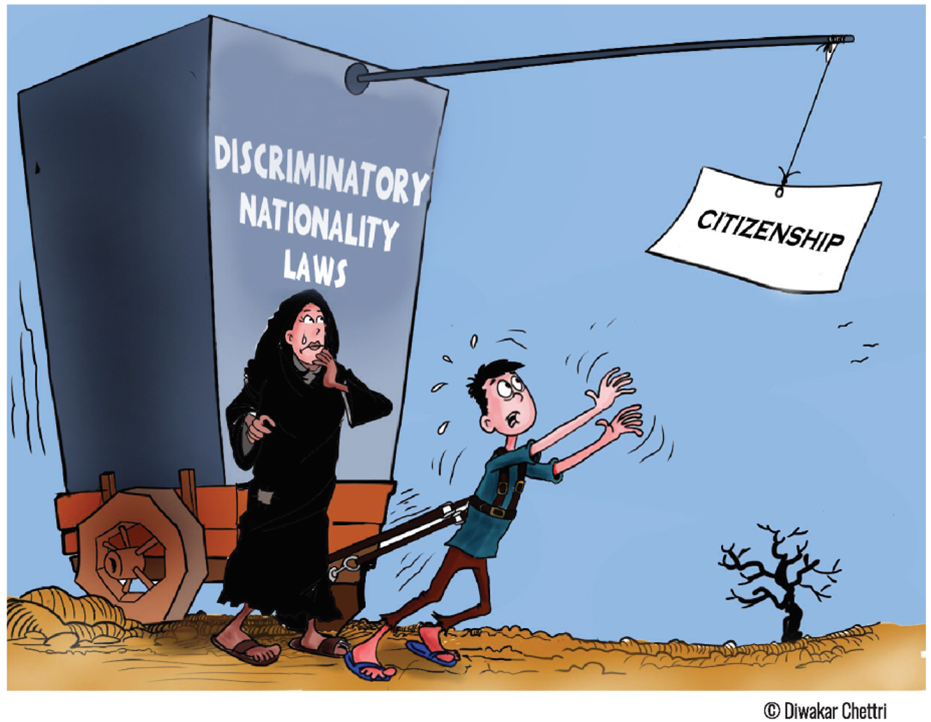FAQ on statelessness
Statelessness is a topic that suffers low awareness as well as many misconceptions. This section is meant to clarify some of the common ones, covering a number of questions that stateless people hear in respect to statelessness. Click on the question to see the answer.
No, the two are quite different. Only some refugees are stateless. The majority of refugees are able to retain and prove their nationality. Refugees are those people who had to flee their country because of safety concerns, while most stateless people are minorities in their own homeland, usually where they were born and continue to permanently reside.
No and yes. A lot boils down to debates on de facto versus de jure statelessness, and whether it is even useful to have these debates. When a person is without legal identification and has no way of acquiring or reestablishing it, that person is effectively stateless (‘de facto’ stateless). Nationality is a critical part of legal identification, one that affords access to critical rights.
According to the World Bank, there are a billion people in the world without any legal identification. That number does not account for uncountable number of stateless people who hold some form of inferior form of legal identification, such as “alien” passports, sub-citizenships, stateless documents or other such legal identification documents with XXX, XXO, and XXA nationality designations.
Yes, there are uncountable millions of stateless people in the world. Some estimates reaching as high as fifteen million, but the data is incomplete and systemically excludes de facto stateless people—like those without legal identification. Numerous countries around the world (at least 22 according to UNHCR) have mass statelessness but do not have reliable data. Statelessness continues to be difficult to account, not least because state actors refuse to cooperate for fear of accountability.
Although punitive deprivation of nationality is possible and happens in modern times, such as for political dissent, it is far more common for people to become stateless arbitrarily. Most commonly, people become stateless due to how they are minorities in their own country that face hatred, scapegoating, and discrimination from a dominant ethnic/religious/ideological group. Racism, sexism, and other forms of discrimination are most typical causes of statelessness.
No, statelessness can affect any people at any place and time. It knows no borders. Case in point, European countries have a long history of making their own populations stateless. Germany, Austria, Greece, Italy, Turkey, Ukraine, Russia, Belarus, Slovenia, Czechoslovakia, Poland, Romania, the Baltics and the Balkans, have all had mass statelessness in the last century (not a complete list). Other countries like the UK, Spain, the Netherlands, Belgium have caused mass statelessness tied to their colonial past.
What does matter is the difference between jus soli and jus sanguinis principles to nationality. Countries with a jus soli principle for nationality, such as the case for most of the countries in the Americas, tend to avoid statelessness better. Although this is not entirely fool-proof, as has been recently illustrated in the Dominican Republic.
To some extent, yes. However, the work of international organizations like UNHCR on statelessness is limited to advocacy and facilitation of dialogue. UNHCR itself recognizes that it is underfunded, understaffed, and under-qualified to handle statelessness. UN agencies bills are also paid by the state actors, creating a conflict of interest dilemma. It does not help that there is very low awareness from the general public about the issue, serving as a barrier to prioritization of the subject.
Not at all. In fact, stateless people are the most vulnerable people in the world and can often be detained by authorities arbitrarily. Stateless people lack the legal protection that is accorded to those who have nationality. Even basic human rights are not easily accessible to the stateless. It must be kept in mind that, as things stand, human rights are enjoyed not via us being human, but via nationality. Nationality is the right to have rights.
This is something that stateless people tend to hear as a response to their bleak situation. There is no such citizenship. Some have suggested a concept of a regionally-based citizenship, like that in the EU, can be an answer to some forms of statelessness. However, as it stands today, granting of citizenship and nationality is entirely under jurisdiction of individual states. Legal rather than factual or natural concept of nationality prevails (until the matter comes to actually counting stateless people).
There are a number of reasons, depending on the form of statelessness. Generally, it must be kept in mind that various forms of discrimination generate as well as maintain statelessness. Without the resolution of the underlying discrimination, options like naturalization are inaccesible to the statelessness. Moreover, in many countries there are legal gaps for the stateless that are a barrier to acquisition to nationality and even residence status. Even in cases where naturalization may be possible, the naturalization process itself may be designed in such a way as to prevent the local stateless population from undertaking it.

